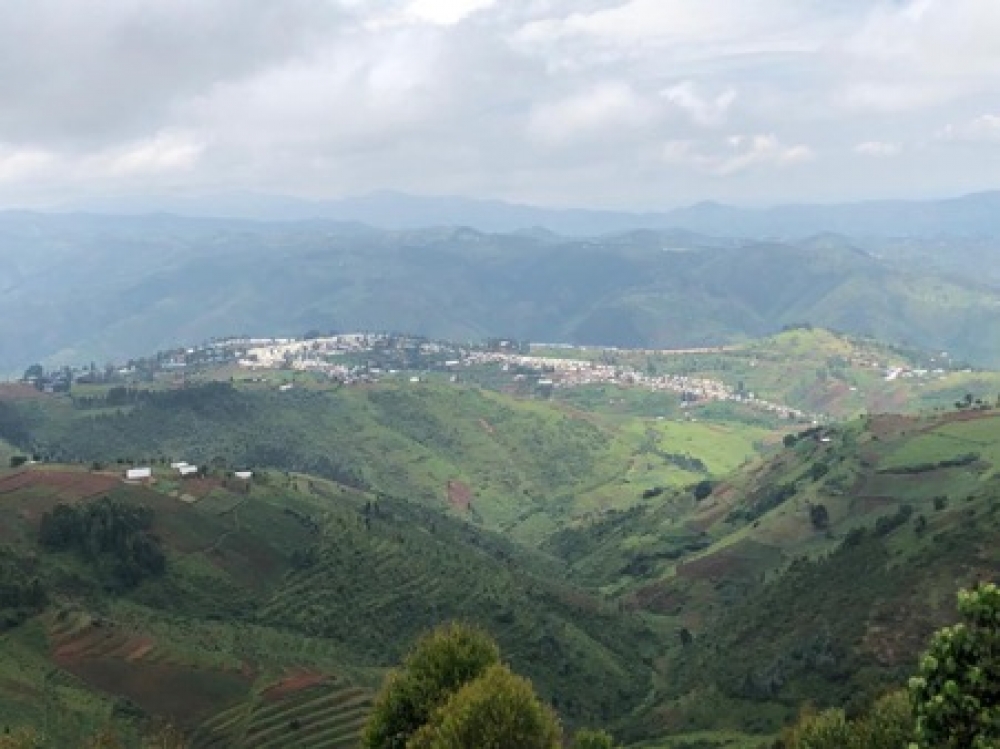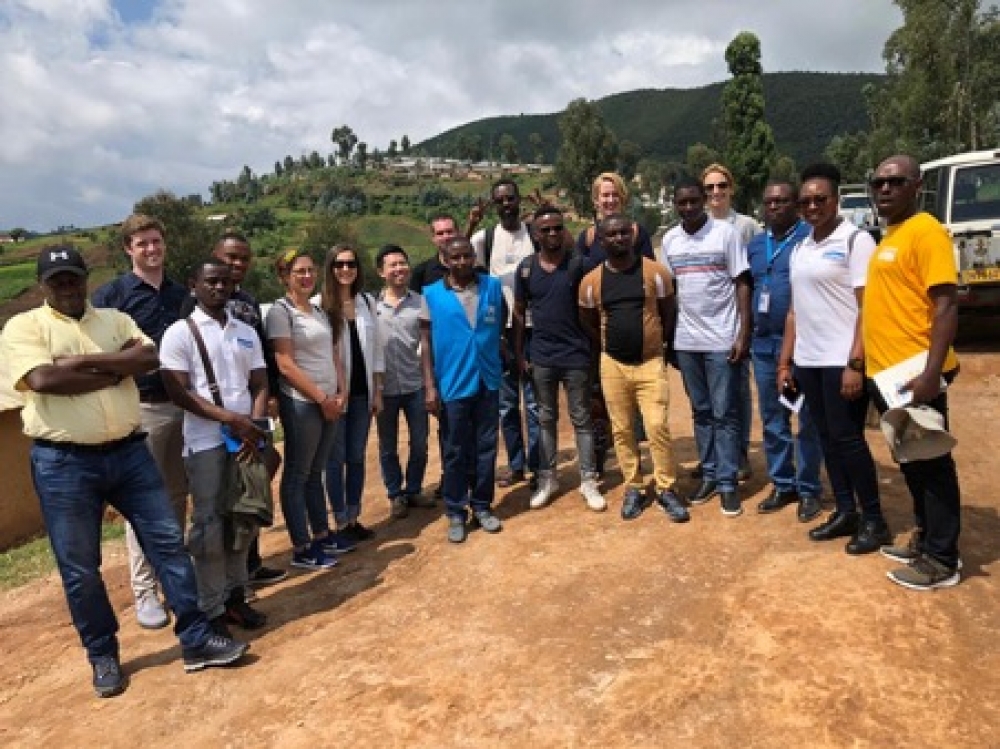In this section
In this sectionOn March 10th, UNHCR Rwanda together with Power Africa and the Global Plan of Action for Sustainable Energy Solutions in Situations of Displacement (GPA), organized a field trip for solar companies to Kiziba refugee camp in Rwanda.
Kiziba camp is Rwanda’s oldest existing refugee camp, opening in 1996 after the start of civil war in DR Congo. Although many have returned to DR Congo, 17,000 refugees remain in the camp which is located on a remote hilltop in the Western Province.
Ten solar companies were represented in the delegation that toured the camp to understand where the opportunities for solarization are. The group visited a health clinic and youth center that are being powered by diesel generators. UNHCR does not have the budget for the upfront cost of a solar solution. Donors have funded one stand-alone solar system for Kepler University located in the camp that provides electricity for laptops, internet, a server, projectors, and TVs. The group toured the university and learned that the system is not sufficiently large enough for the loads and could use additional power. A stop was also made at the local market where an entrepreneur has set up a diesel mini-grid and is selling electricity to businesses.
Three solar mini-grid developers were intrigued by the potential for opportunities in the camp given the existence of the seven diesel generators provided by UNHCR and the density and number of households. Some households have solar home systems (SHS) and the potential for more was noted, but the poor condition of the road leading to the camp was mentioned as a barrier for companies to work in the camp, along with the distance from other population centers. UNHCR reports that there is funding and a plan to pave most of the road to provide better access for a nearby tea plantation and the camp.
This trip came as a follow-up from a workshop that was held in June last year titled ‘Market-based Approaches to Electricity Access for Refugees’. Power Africa, UNHCR Rwanda and the GPA hope to continue these workshops in order to encourage and increase private sector engagement in energy access for refugees through better coordination and information sharing. The private sector has indicated that it would be useful to have more data on electricity and cooking demand as well as ability and willingness to pay of different customer groups. Power Africa is exploring with other stakeholders the possibility of conducting surveys and doing further analysis to provide additional information on refugees that would be useful to the energy sector.
Last updated: 14/04/2020


